– Montessori Parenting –
The world is facing the second year of the COVID-19 pandemic.
With all the challenges we face on a day-to-day basis, we are able to operate our school without going into virtual learning.
This is possible since Japan strictly follows the Preventive Protocols as well as the continuous sacrifices of the management and the teachers, whereas many other parts of the world are still struggling.
Within these circumstances, we continue to do our best to give these children a wonderful experience and the best of our care.
I would like to pen down a few Montessori parenting tips that can be practiced.
It is true that educators need to have a well-rounded and complete understanding of the Montessori pedagogy to run a classroom.
However, there are many things as parents that you can do as well through simple Montessori ideology.
The first most important thing that you could do is to respect your child as a person.
Many people find this strange at first, since they may seem too young for that kind of respect.
But on the contrary, that is the very reason to show children respect in day-to-day interactions.
They will learn to respect others following your example, while making them feel heard and loved.
Fostering your child’s freedom and independence is another concept that is hard to follow.
You may feel that helping them every step of the way will keep them safe, but this is sometimes unhelpful, especially in a child’s learning process.
They must learn to stand on their own feet.
By letting them be independent as much as they can, they instill in themselves self-confidence and the motivation to explore their interests.
Montessori classrooms are generally designed in this way to allow children to use them independently.
This can be done at home too, by making shelves and things accessible by placing them within the child’s reach.
On the other hand, too much independence and freedom are not good either.
Montessori practices a delicate concept “Freedom within limits”,
meaning that while you let your child guide their own daily activities, it is important to set limits to help your child understand what is and is not acceptable.
You should also keep in mind that children need ample time and space to explore their interests.
Remember that children have a different time schedule than adults; it is important you make time for your child in your daily schedule!
A good concept for vocabulary building is to use big words even when talking to little kids, as this will help incorporate new language every time your child asks, “What does that mean?”.
Don’t censor your language; replace words like ‘small’ with words like ‘tiny’ or ‘miniature’.
Finally, always remember to observe your child throughout their learning journey.
As educators have learned, observing your children gives you insights into their unique and intricate character.
Observe what they truly enjoy, what frustrates them and what they tire of easily; you can use these observations to cater activities based on what your child prefers.
By using some of the above tips and ideas, you will be able to create a caring and supporting environment that will contribute to your child’s learning.
As Maria Montessori once said
“The child’s conquest of independence begins with his first introduction to life.
While he is developing, he perfects himself and overcomes every obstacle that he finds in his path.
A vital force is active within him, and this guides his efforts towards their goal.”
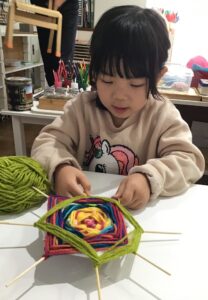
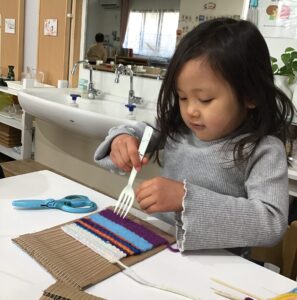
Creative yarn craft activities.
children like choose colors and make their own patterns.
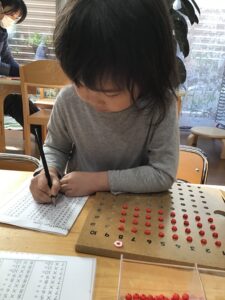
Independently working on the multiplication board.
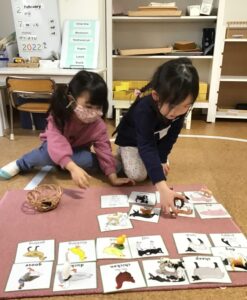
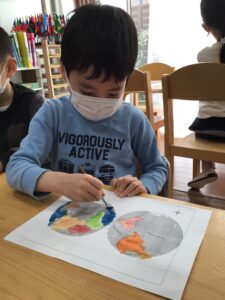
Painting the continent world map and labeling.
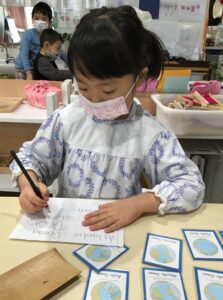
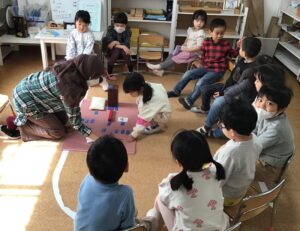
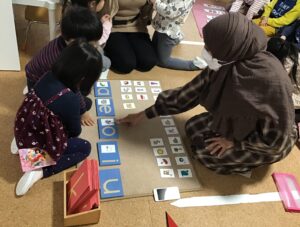
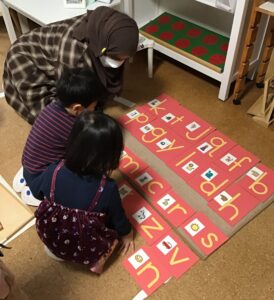
We found the beginning sounds of each letter and matched the picture cards.

